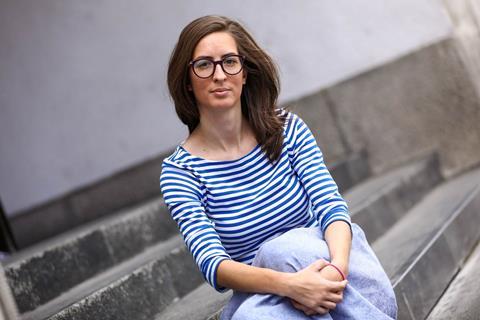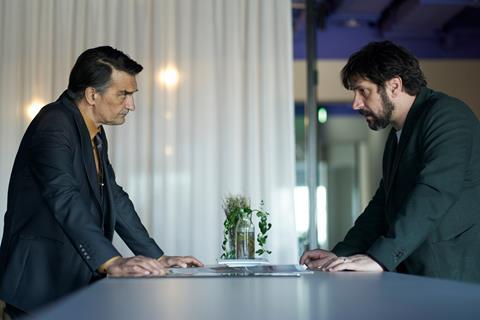
A return to 2019 attendance levels at Sarajevo’s CineLink industry platform is just one part of the good news for Masa Markovic, who has taken over as head of industry after working in the section for 15 years.
Even better is that “25-30%” of those 1,200 attendees are coming to the festival for the first time. “That means that people in search of something new are coming here,” says Markovic.
First-time visitors include executives from French conglomerate Mediawan and UK-based production and distribution firm Fremantle. The rookies extend beyond the film sphere, with representatives from video-sharing platform Vimeo, and file-sharing site WeTransfer. Further key attendees include Neil Peplow, director of industry and international affairs at the BFI. CineLink is in conversations with the UK body for a spotlight on the region, “to share its new production possibilities”, says Markovic.
Sixty countries are represented across the industry guests. However, “it’s not about geographical”, and rather about what the festival can do for those who do come. “The whole logic of the festival and industry is that we are serving our purpose, and really are ‘the discovery festival’,” says Markovic.
Discussions were well underway to bring guests from major US studios including Netflix and Disney. While those weren’t realised in time due to the financial situation in the current market, Markovic says “this is something that definitely is happening. If they’re not here this year, they will be very soon.
After an extensive application process, in May this year the festival secured additional funding through the Creative Europe MEDIA programme that has been used for this year’s event and will carry over to 2023.
Lessons from war
As highlighted by new sole festival director Jovan Marjanovic, Sarajevo has a unique position in relation to the war in Ukraine, due to its own conflict within living memory. The festival was founded in 1995 while the siege of the city by Serbian forces was still ongoing, with staff smuggling film reels through tunnels so they could host screenings.
“Sarajevo serves as a great example because two years after the war, we already started to screen Serbian films at the festival,” says Markovic. Launched in 2003, CineLink continued this collaboration for the industry, with co-productions between Bosnia and Herzegovina, Serbia and other Balkan nations progressing through the platform and ending up in the festival. “This was essential for connecting ties.”
It is this experience that guards Markovic against a total negation of Russian screen content. “The lesson [Bosnia and Herzegovina] learned is that when everything stops, you need to have somebody to give a hand,” she says. “Otherwise, nothing will happen. That is why from our perspective, a boycott is not going to be fruitful.” While they are not banned from the event, there are no Russian guests at CineLink, as “we’re not the market for them”.

The 19 years of its existence have borne fruit for the industry strand, increasingly in the television realm.
Two series from the first edition of the CineLink Drama co-financing forum are represented at the festival. Danis Tanovic and Amra Baksic Camo’s The Hollow is playing its first two episodes in the Avant Premiere Series section; while Marjan Alcevski’s crime drama The Silence scored six nominations in the festival’s Heart of Sarajevo Awards for TV series. Five-time winner The Last Socialist Artefact came through the second CineLink.
The platform is also freshening up with its inaugural Producers’ Lab, which connects young producers from Southeast Europe with industry experts who give knowledge of market shifts and supply chain changes. Markovic sees the purpose as threefold.
“You have a whole new generation who spent the beginning of their career as a line producer or junior producer in a company, who were supposed to start creating their networks but didn’t because they had to do it online,” she says. Then there are “the senior producers with very well-established networks that are not translating down.”
Thirdly, “the system for funding audiovisual content has changed drastically. So the know-how of senior producers, of how they are relevant to young people who are now doing more series than anything else, is in question. The ecosystem is completely changing.”

























No comments yet